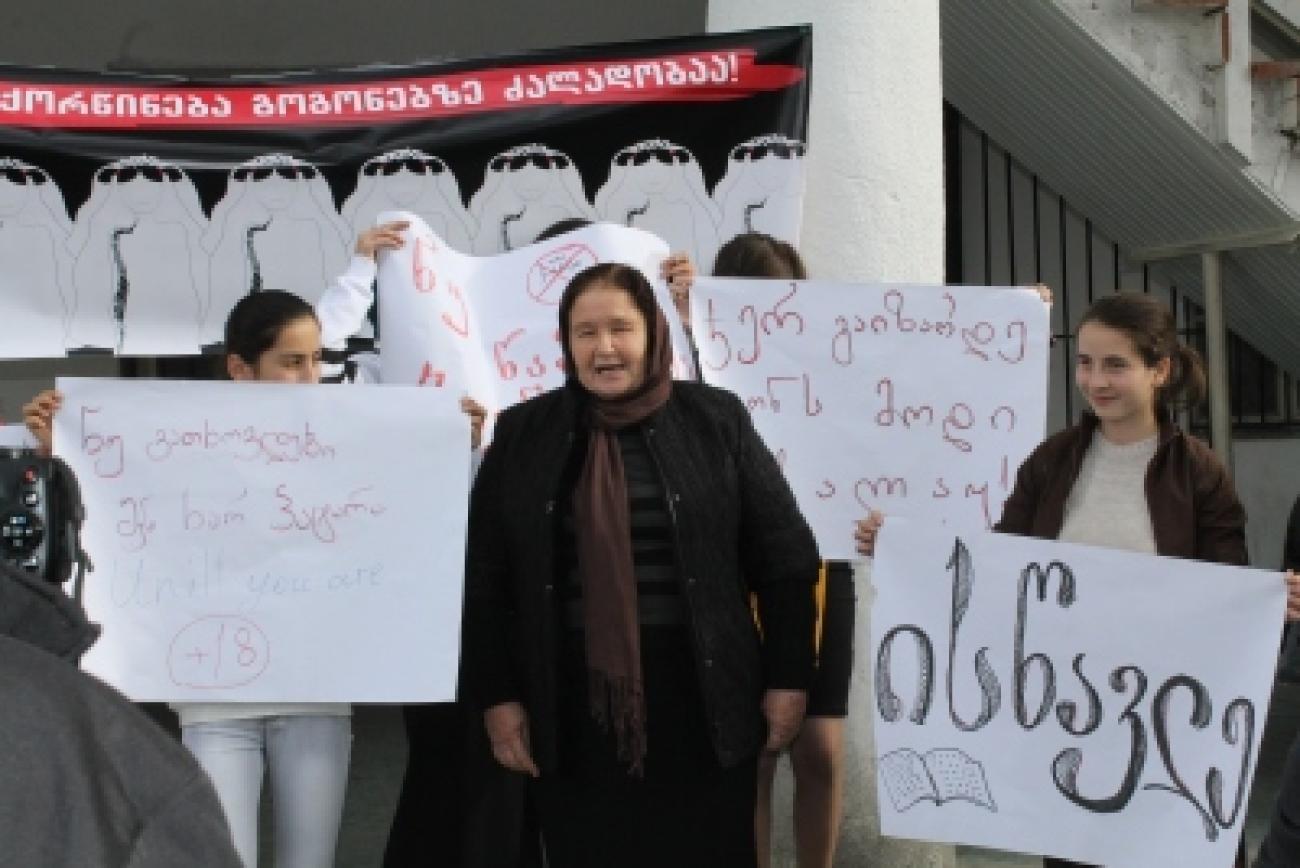Pankisi is located in the eastern part of Georgia (Kakheti region) and is mostly populated by ethnic Kists. The decision was made by imams from traditional Islamic mosques, together with the Council of Elders in the Gorge.
In Pankisi, early marriages are most common among girls aged 16-17. Although the trend is no longer growing compared with previous years, here, girls are deemed ready for marriage after they finish school. Religious leaders enjoy a high level of authority in Pankisi, which is why their choice to make a public statement about their decision on discouraging early marriages is of paramount importance. It is noteworthy that the Council of Women Elders has contributed a lot to making this decision.
The initiative emerged in November 2015, when Pankisi’s Council of Women Elders and the Kakheti Regional Development Foundation (KRDF) organized a rally against early marriage, as part of the 16-days of Activism against Gender Violence. Iza Bekauri, Director of KRDF and one of the founders of the Council of Women Elders, says that the Council of Elders were also invited to the event: “We met with the youths and called on them to say NO to early marriage. We have worked with the Council of Elders too in this respect. They liked the initiative and decided to make this topic public.” Pankisi’s Council of Women Elders was established in the Gorge in 2011, with the support of the UN High Commissioner for Refugees. Since 2014, the Council has also been cooperating intensively with UN Women. It consists of 18 women and its main activities are focused on women’s rights, as well as advocating for women’s issues with the male Council of Elders. The Council of Women Elders has a role mediating between local women and elderly men, while trying to raise the issue of women’s rights in an appropriate manner and advocating for fair decisions in favor of women.
Another significant accomplishment of the Council of Women Elders is related to women’s legal ownership of property in the Pankisi Gorge. To date, according to tradition, a brother-less woman would not be entitled to inherit the property of her parents. However, after the Council of Women Elders started to advocate on this topic, the Council of Elders resolved several cases in favor of women and they were granted title to the property. According to the Civil Code of Georgia, marriage is permitted in the country upon reaching the age of 18. A regulation allowing the marriage of youths who had reached the age of 16, if they had the consent of their parents was abolished from January 1, 2016.
This amendment to the legislation was made pursuant to a recommendation of the CEDAW Committee. Currently, in exceptional cases, a person who has reached the age of 16 can get married, if s/he so wishes, with a court’s consent (in extraordinary circumstances such as pregnancy). However, even these exceptions will be abolished from January 2017, and the law will completely ban marriage for people under the age of 18. Iza Bekauri thinks that together with legislative amendments, traditional opinions and rules in the Pankisi Gorge need to be reformed and modernized. The Council of Women Elders still has much work to do with local women and men, especially with the youth. A shift in public perceptions should support the successful integration of these new laws in other parts of the community. UN Women has been cooperating with the Kakheti Regional Development Foundation since 2014, within the UN joint program Enhancing Gender Equality (funded by the Swedish Government and implemented by UNDP / UN Women / UNFPA). This cooperation aims to involve men and boys in combating violence against women and girls, as well as combating domestic violence, whilst raising their awareness of these issues.




